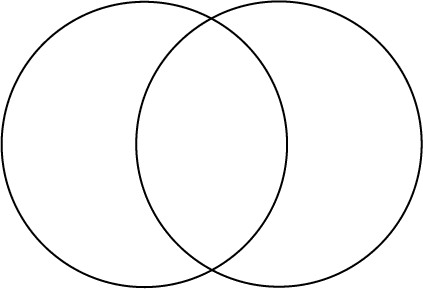ACT FROM DUTY
IMMANUEL KANT
The Good Will
Nothing can possibly be conceived in the world, or even out of it, which can be called good, without qualification, except a good will. Intelligence, wit, judgment, and the other talents of the mind, however they may be named, or courage, resolution, perseverance, as qualities of temperament, are undoubtedly good and desirable in many respects; but these gifts of nature may also become extremely bad and mischievous if the will which is to make use of them, and which, therefore, constitutes what is called character, is not good. It is the same with the gifts of fortune. Power, riches, honor, even health, and the general well-being and contentment with one’s condition which is called happiness, inspire pride, and often presumption, if there is not a good will to correct the influence of these on the mind, and with this also to rectify the whole principle of acting and adapt it to its end. The sight of a being who is not adorned with a single feature of a pure and good will, enjoying unbroken prosperity, can never give pleasure to an impartial rational spectator. Thus a good will appears to constitute the indispensable condition even of being worthy of
Moderation in the affections and passions, self-control, and calm deliberation are not only good in many respects, but even seem to constitute part of the intrinsic worth of the person; but they are far from deserving to be called good without qualification, although they have been so unconditionally praised by the ancients. For without the principles of a good will, they may become extremely bad, and the coolness of a villain not only makes him far more dangerous, but also directly makes him more abominable in our eyes than he would have been without it.
Moderation in the affections and passions, self-control, and calm deliberation are not only good in many respects, but even seem to constitute part of the intrinsic worth of the person; but they are far from deserving to be called good without qualification, although they have been so unconditionally praised by the ancients. For without the principles of a good will, they may become extremely bad, and the coolness of a villain not only makes him far more dangerous, but also directly makes him more abominable in our eyes than he would have been without it.
"A good will is good not because of what it performs or effects, not by its aptness for the attainment of some proposed end, but simply by virtue of the volition; that is, it is good in itself, and considered by itself is to be esteemed much higher than all that can be brought about by it..."
Kant
vs
Aristotle
...Unfortunately, the notion of happiness is so indefinite that although every man wishes to attain it, yet he never can say definitely and consistently what it is that he really wishes and wills. The reason of this is that all the elements which belong to the notion of happiness are altogether empirical, i. e., they must be borrowed from experience, and nevertheless the idea of happiness requires an absolute whole, a maximum of welfare in my present and all future circumstances.
Every art and every inquiry, and similarly every action and pursuit, is thought to aim at some good; and for this reason the good has rightly been declared to be that at which all things aim...Verbally there is very general agreement; for both the general run of men and people of superior refinement say that it is happiness, and identify living well and doing well with being happy. (From Book 1 of the Nicomachean Ethics)
...on the role of happiness in ethics.
happiness.
Kant on the Virtues
Kant thinks the value of virtues even depends on the possession of a good will, further distinguishing his position from Aristotle's. As he says below, virtues possessed by someone with a bad will make the person even worse than had they not possessed them.
There are even some qualities which are of service to this good will itself and may facilitate its action, yet which have no intrinsic unconditional value, but always presuppose a good will, and this qualifies the esteem that we justly have for them and does not permit us to regard them as absolutely good.
Acting from Duty
Example 1: The Honest Grocer
Example 2: The Sad Philanthropist

Acts done from inclination
Acts done from duty
We have then to develop the notion of a will which deserves to be highly esteemed for itself and is good without a view to anything further, a notion which exists already in the sound natural understanding, requiring rather to be cleared up than to be taught, and which in estimating the value of our actions always takes the first place and constitutes the condition of all the rest. In order to do this, we will take the notion of duty, which includes that of a good will, although implying certain subjective restrictions and hindrances. These, however, far from concealing it, or rendering it unrecognizable, rather bring it out by contrast and make it shine forth so much the brighter.

A soldier who jumps on a grenade to save the lives of his fellow soldiers presumably acts purely from duty. This is because there is no natural inclination to die to save one's friends, and -- assuming the soldier is not suicidal -- he has not cultivated any inclination in himself to die.
Suppose you were a professional film reviewer. You might watch films partly out of duty, since that's what your job requires you to do, but partly out of inclination, since you really enjoy watching films.


Eating ice cream is something one would ordinarily do purely from inclination, since there is no duty that would command us to do so, and since it's the sort of thing we do because we find it pleasant.
Acts done purely duty
Acts done partly from duty and partly from inclination
Acts done purely from inclination
I omit here all actions which are already recognized as inconsistent with duty, although they may be useful for this or that purpose, for with these the question whether they are done from duty cannot arise at all, since they even conflict with it. I also set aside those actions which really conform to duty, but to which men have no direct inclination, performing them because they are impelled thereto by some other inclination. For in this case we can readily distinguish whether the action which agrees with duty is done from duty, or from a selfish view. It is much harder to make this distinction when the action accords with duty and the subject has besides a direct inclination to it.
It is always a matter of duty that a dealer should not over charge an inexperienced purchaser; and wherever there is much commerce the prudent tradesman does not overcharge, but keeps a fixed price for everyone, so that a child buys of him as well as any other. Men are thus honestly served; but this is not enough to make us believe that the tradesman has so acted from duty and from principles of honesty: his own advantage required it; it is out of the question in this case to suppose that he might besides have a direct inclination in favor of the buyers, so that, as it were, from love he should give no advantage to one over another.

To be beneficent when we can is a duty; and besides this, there are many minds so sympathetically constituted that, without any other motive of vanity or self-interest, they find a pleasure in spreading joy around them and can take delight in the satisfaction of others so far as it is their own work. But I maintain that in such a case an action of this kind, however proper, however amiable it may be, has nevertheless no true moral worth, but is on a level with other inclinations, e. g., the inclination to honor, which, if it is happily directed to that which is in fact of public utility and accordant with duty and consequently honorable, deserves praise and encouragement, but not esteem.

For the maxim lacks the moral import, namely, that such actions be done from duty, not from inclination. Put the case that the mind of that philanthropist were clouded by sorrow of his own, extinguishing all sympathy with the lot of others, and that, while he still has the power to benefit others in distress, he is not touched by their trouble because he is absorbed with his own; and now suppose that he tears himself out of this dead insensibility, and performs the action without any inclination to it, but simply from duty, then first has his action its genuine moral worth. Further still; if nature has put little sympathy in the heart of this or that man; if he, supposed to be an upright man, is by temperament cold and indifferent to the sufferings of others, perhaps because in respect of his own he is provided with the special gift of patience and fortitude and supposes, or even requires, that others should have the same- and such a man would certainly not be the meanest product of nature- but if nature had not specially framed him for a philanthropist, would he not still find in himself a source from whence to give himself a far higher worth than that of a good-natured temperament could be? Unquestionably. It is just in this that the moral worth of the character is brought out which is incomparably the highest of all, namely, that he is beneficent, not from inclination, but from duty.
Breaking down the Categorical Imperative
What is a Maxim?
Universal Law?
Example: Never Lie
A Helpful Video
An imperative is a command. A maxim combines such a command with some reason for acting, and the result is a description of an action that we can recognize as intentional.
For instance: "Always wear sunscreen at the beach in order to avoid sunburn."
Or: "Never cheat in order to get ahead."
For Kant, every intentional action has a corresponding maxim, a description that combines a command to act with the reason for which you are acting
The key to obeying the categorical imperative, then, is to make sure that your maxim is such that you could consistent will that it become a universal law. What does that mean?
A maxim would be a universal law if any agent who found herself in circumstances relevantly similar to the circumstances in which you now find yourself obeyed the maxim that you are now acting on.
Say you have the chance to steal from a shop owner who's left cash out on the counter, and decide to act on the maxim, "Steal whenever given the opportunity, so long as you won't be caught." If this maxim were a universal law, than any agent who ever found herself in a position to steal without being caught would do so.
The crucial question in determining whether an action is moral or not becomes whether we could consistently will that the maxim under which that action was performed become a universal law.
Here's the case Kant uses to illustrate how one would go about applying this strategy in order to determine whether a particular action is morally permissible:
"The common reason of men in its practical judgments perfectly coincides with this and always has in view the principle here suggested. Let the question be, for example: May I when in distress make a promise with the intention not to keep it? I readily distinguish here between the two significations which the question may have: Whether it is prudent, or whether it is right, to make a false promise?
"The shortest way, however, and an unerring one, to discover the answer to this question whether a lying promise is consistent with duty, is to ask myself, “Should I be content that my maxim (to extricate myself from difficulty by a false promise) should hold good as a universal law, for myself as well as for others? and should I be able to say to myself, “Every one may make a deceitful promise when he finds himself in a difficulty from which he cannot otherwise extricate himself?” Then I presently become aware that while I can will the lie, I can by no means will that lying should be a universal law. For with such a law there would be no promises at all, since it would be in vain to allege my intention in regard to my future actions to those who would not believe this allegation, or if they over hastily did so would pay me back in my own coin. Hence my maxim, as soon as it should be made a universal law, would necessarily destroy itself. I do not, therefore, need any far-reaching penetration to discern what I have to do in order that my will may be morally good. Inexperienced in the course of the world, incapable of being prepared for all its contingencies, I only ask myself: Canst thou also will that thy maxim should be a universal law? If not, then it must be rejected, and that not because of a disadvantage accruing from it to myself or even to others, but because it cannot enter as a principle into a possible universal legislation, and reason extorts from me immediate respect for such legislation."
Here's a video that will help illustrate the Categorical Imperative in the context of Kant's example of lying
Four Additional Cases
Suicide
Dishonest Borrower
The Bitter Rich Man
The Talented Recluse
A man reduced to despair by a series of misfortunes feels wearied of life, but is still so far in possession of his reason that he can ask himself whether it would not be contrary to his duty to himself to take his own life. Now he inquires whether the maxim of his action could become a universal law of nature. His maxim is: “From self-love I adopt it as a principle to shorten my life when its longer duration is likely to bring more evil than satisfaction.” It is asked then simply whether this principle founded on self-love can become a universal law of nature.

Now we see at once that a system of nature of which it should be a law to destroy life by means of the very feeling whose special nature it is to impel to the improvement of life would contradict itself and, therefore, could not exist as a system of nature; hence that maxim cannot possibly exist as a universal law of nature and, consequently, would be wholly inconsistent with the supreme principle of all duty.

Another finds himself forced by necessity to borrow money. He knows that he will not be able to repay it, but sees also that nothing will be lent to him unless he promises stoutly to repay it in a definite time. He desires to make this promise, but he has still so much conscience as to ask himself: “Is it not unlawful and inconsistent with duty to get out of a difficulty in this way?” Suppose however that he resolves to do so: then the maxim of his action would be expressed thus: “When I think myself in want of money, I will borrow money and promise to repay it, although I know that I never can do so.”
Now this principle of self-love or of one’s own advantage may perhaps be consistent with my whole future welfare; but the question now is, “Is it right?” I change then the suggestion of self-love into a universal law, and state the question thus: “How would it be if my maxim were a universal law?” Then I see at once that it could never hold as a universal law of nature, but would necessarily contradict itself. For supposing it to be a universal law that everyone when he thinks himself in a difficulty should be able to promise whatever he pleases, with the purpose of not keeping his promise, the promise itself would become impossible, as well as the end that one might have in view in it, since no one would consider that anything was promised to him, but would ridicule all such statements as vain pretenses.
A third, who is in prosperity, while he sees that others have to contend with great wretchedness and that he could help them, thinks: “What concern is it of mine? Let everyone be as happy as Heaven pleases, or as be can make himself; I will take nothing from him nor even envy him, only I do not wish to contribute anything to his welfare or to his assistance in distress!” Now no doubt if such a mode of thinking were a universal law, the human race might very well subsist and doubtless even better than in a state in which everyone talks of sympathy and good-will, or even takes care occasionally to put it into practice, but, on the other side, also cheats when he can, betrays the rights of men, or otherwise violates them.

But although it is possible that a universal law of nature might exist in accordance with that maxim, it is impossible to will that such a principle should have the universal validity of a law of nature. For a will which resolved this would contradict itself, inasmuch as many cases might occur in which one would have need of the love and sympathy of others, and in which, by such a law of nature, sprung from his own will, he would deprive himself of all hope of the aid he desires. These are a few of the many actual duties, or at least what we regard as such, which obviously fall into two classes on the one principle that we have laid down.

A fourth finds in himself a talent which with the help of some culture might make him a useful man in many respects. But he finds himself in comfortable circumstances and prefers to indulge in pleasure rather than to take pains in enlarging and improving his happy natural capacities. He asks, however, whether his maxim of neglect of his natural gifts, besides agreeing with his inclination to indulgence, agrees also with what is called duty.
He sees then that a system of nature could indeed subsist with such a universal law although men (like the South Sea islanders) should let their talents rest and resolve to devote their lives merely to idleness, amusement, and propagation of their species- in a word, to enjoyment; but he cannot possibly will that this should be a universal law of nature, or be implanted in us as such by a natural instinct. For, as a rational being, he necessarily wills that his faculties be developed, since they serve him and have been given him, for all sorts of possible purposes.


Created by Paul Blaschko and Meghan Sullivan, 2016
For more information, visit the website for God and the Good Life